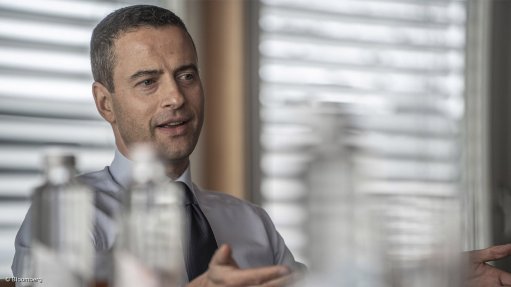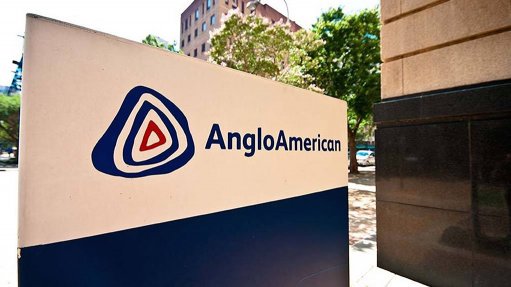Local expertise needed to address challenges


LEONARD DE VILLIERS Challenges have resulted in significant disruptions and inefficiencies in the country’s transportation network
Despite having the most advanced railway system on the continent, with about 30 000 km of track, the South African rail and transportation sector is currently facing numerous significant challenges, electromechanical equipment manufacturer Actom Signalling division engineering projects and contracts GM Leonard de Villiers says.
He refers to State-owned enterprise Transnet, which operates a freight rail division, and is currently struggling with issues such as rampant vandalism, insufficient infrastructure and a lack of capacity and skills within its workforce.
These challenges have resulted in significant disruptions and inefficiencies in the country’s transportation network, hindering the smooth flow of goods and services, as well as public transportation, De Villiers laments.
Compounding the problem is a lack of funding for critical projects and cumbersome procurement processes, which he adds are stalling decision-making and crippling the entity’s ability to repair its dilapidated infrastructure.
According to De Villiers, a significant indication of Transnet’s challenges is its decision to outsource certain railway lines, including the key container line between Johannesburg and KwaZulu-Natal.
This, he says, “reflects the company’s need to seek external expertise and resources to overcome the deficiencies within its operations”.
Over the past few years, the Johannesburg to KwaZulu-Natal container line has not been operating optimally, running at about 50% below capacity owing to vandalism and theft. Transnet also currently lacks the funding to embark on projects to repair the line, meaning it must turn to the private sector to get involved.
With mounting pressure to remove at least some portion of the freight trucks that use South Africa’s ailing road network, De Villiers notes it is expected that private-sector investment and expertise will play a key role in bringing the railway line back to operating at 90% capacity at least.
“The country has several private-sector companies that are well-positioned to assist the railways and transportation sector and which could render support to any external group that takes over the operation of Transnet’s railway lines,” he comments, noting that with their local manufacturing capabilities, these companies can typically support all the equipment and systems on the line, offering a range of products, services, and maintenance support tailored to the specific needs of the industry.
This would essentially contribute to the improvement of the overall efficiency, reliability and safety of the country’s transportation network, he adds.
Currently, much of Transnet’s infrastructure is in dire need of maintenance, and local specialist companies can carry out fault-finding, repair the systems or offer solutions that will see trains moving again, De Villiers says.
However, he notes it is key that Transnet looks to South Africa-based companies to renew its rail infrastructure.
“South African railways are unique to Africa, so it would be less than ideal for a foreign entity to install systems not geared to the local environment or our infrastructure,” he says.
Many local players have development teams that specialise in designing solutions to address uniquely South African challenges and many are already well versed with the problems faced by Transnet.
Additionally, local companies are also familiar with local systems and requirements, such as South African signalling principles which are different to those in European countries. Thus, De Villiers suggests that “homegrown solutions” and locally manufactured equipment are “much better suited to addressing South Africa’s railway issues”.
“By partnering with local private sector players, Transnet and other stakeholders in the industry can benefit from a reliable and responsive support system and get help to overcome the existing capacity and skills gaps, ultimately enhancing the efficiency and effectiveness of the country’s transport infrastructure,” he concludes.
Comments
Press Office
Announcements
What's On
Subscribe to improve your user experience...
Option 1 (equivalent of R125 a month):
Receive a weekly copy of Creamer Media's Engineering News & Mining Weekly magazine
(print copy for those in South Africa and e-magazine for those outside of South Africa)
Receive daily email newsletters
Access to full search results
Access archive of magazine back copies
Access to Projects in Progress
Access to ONE Research Report of your choice in PDF format
Option 2 (equivalent of R375 a month):
All benefits from Option 1
PLUS
Access to Creamer Media's Research Channel Africa for ALL Research Reports, in PDF format, on various industrial and mining sectors
including Electricity; Water; Energy Transition; Hydrogen; Roads, Rail and Ports; Coal; Gold; Platinum; Battery Metals; etc.
Already a subscriber?
Forgotten your password?
Receive weekly copy of Creamer Media's Engineering News & Mining Weekly magazine (print copy for those in South Africa and e-magazine for those outside of South Africa)
➕
Recieve daily email newsletters
➕
Access to full search results
➕
Access archive of magazine back copies
➕
Access to Projects in Progress
➕
Access to ONE Research Report of your choice in PDF format
RESEARCH CHANNEL AFRICA
R4500 (equivalent of R375 a month)
SUBSCRIBEAll benefits from Option 1
➕
Access to Creamer Media's Research Channel Africa for ALL Research Reports on various industrial and mining sectors, in PDF format, including on:
Electricity
➕
Water
➕
Energy Transition
➕
Hydrogen
➕
Roads, Rail and Ports
➕
Coal
➕
Gold
➕
Platinum
➕
Battery Metals
➕
etc.
Receive all benefits from Option 1 or Option 2 delivered to numerous people at your company
➕
Multiple User names and Passwords for simultaneous log-ins
➕
Intranet integration access to all in your organisation



















